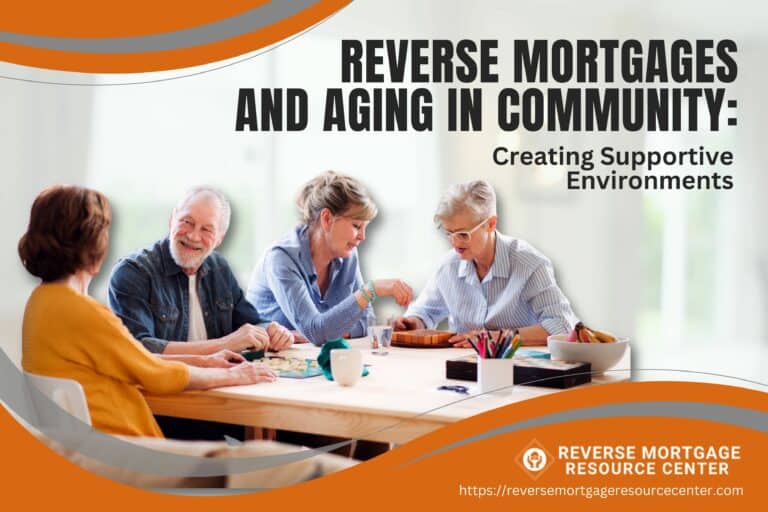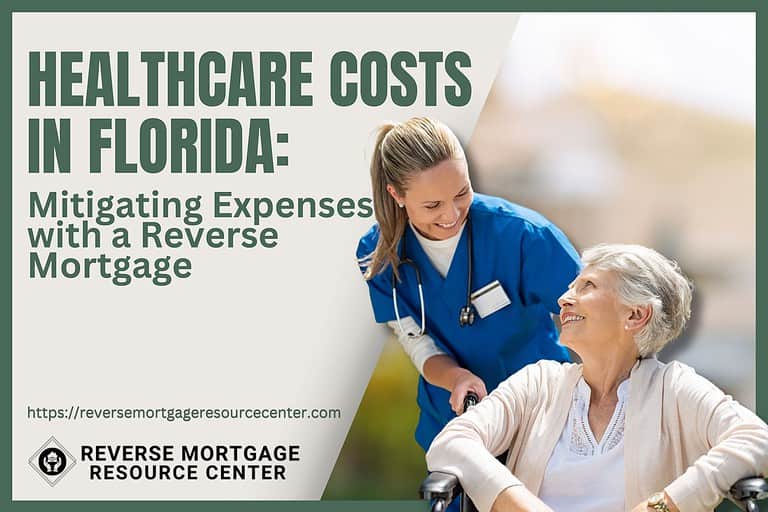Lifelong Learning Opportunities for Seniors: Financing Education with Reverse Mortgages
As we age, the pursuit of knowledge and personal growth remains an integral part of a fulfilling life. However, for many seniors facing financial challenges in retirement, accessing educational opportunities may seem out of reach. Fortunately, there are innovative solutions available, such as leveraging reverse mortgages to finance lifelong learning endeavors. In this article, we’ll explore the importance of continued education for seniors, the potential benefits of utilizing reverse mortgages for financing education, and resources and programs aimed at supporting seniors in their quest for lifelong learning.
The Importance of Lifelong Learning for Seniors
Retirement doesn’t mark the end of personal development. In fact, for many seniors, it presents an opportunity to explore new interests, acquire new skills, and engage with their communities in meaningful ways. Lifelong learning not only enriches the mind but also contributes to overall well-being and quality of life.
Research consistently shows that continued education among seniors leads to improved cognitive function, enhanced social connections, and greater self-esteem. Learning new subjects or honing existing skills can also open doors to new hobbies, volunteer opportunities, or even second careers, providing a sense of purpose and fulfillment in the golden years.
Financial Challenges in Retirement
Despite the desire to pursue lifelong learning, many seniors face financial constraints in retirement. Fixed incomes, rising healthcare costs, and unexpected expenses can make it difficult to allocate funds towards educational pursuits. Traditional sources of funding, such as savings or pensions, may not always be sufficient to cover tuition fees or other educational expenses.
In this landscape, exploring alternative financing options becomes crucial for seniors who are eager to continue their education but lack the necessary financial resources. One such option worth considering is the utilization of reverse mortgages.
Leveraging Reverse Mortgages for Education
A reverse mortgage allows homeowners aged 62 and older to convert a portion of their home equity into readily accessible funds, which can be received as a lump sum, a line of credit, or in fixed monthly disbursements. Unlike a traditional mortgage where the homeowner makes monthly payments to the lender, with a reverse mortgage, the lender distributes funds to the homeowner, based on the equity in the home.
For seniors who have significant equity built up in their homes but limited income streams, a reverse mortgage can provide much-needed liquidity to finance educational pursuits. Whether it’s enrolling in university courses, attending workshops or seminars, or pursuing certifications, the funds from a reverse mortgage can be used to cover tuition fees, course materials, and other related expenses.
One of the key advantages of utilizing a reverse mortgage for education is that it doesn’t require monthly repayments. Instead, the loan is typically repaid when the homeowner sells the home, moves out permanently, or passes away. This feature can provide seniors with the financial flexibility they need to invest in their education without adding additional strain to their monthly budgets.
Considerations and Precautions
While reverse mortgages can offer a viable solution for financing education in retirement, it’s essential for seniors to carefully consider the implications before proceeding. Some important factors to keep in mind include:
- Loan Costs: Reverse mortgages often come with upfront fees and closing costs, which can eat into the equity available to the homeowner. It’s essential to fully understand the fees associated with the loan and how they will impact the overall financial picture.
- Impact on Heirs: Since a reverse mortgage is repaid from the proceeds of the sale of the home, it can reduce the inheritance left to heirs. Seniors should discuss the implications of a reverse mortgage with their family members and heirs to ensure everyone is aware of the potential impact on future inheritances.
- Loan Repayment: While no monthly payments are required with a reverse mortgage, homeowners are still responsible for maintaining the property, paying property taxes, and keeping up with homeowners insurance. Failure to meet these obligations could result in default and foreclosure.
Resources and Programs for Lifelong Learning
In addition to exploring financing options like reverse mortgages, seniors can take advantage of a variety of resources and programs designed to support lifelong learning:
- Senior Centers and Community Colleges: Many senior centers and community colleges offer affordable or even free educational programs specifically tailored to older adults. These may include classes on topics such as art, history, technology, and fitness.
- Online Learning Platforms: The internet has made learning more accessible than ever before. Websites like Coursera, Udemy, and Khan Academy offer a wide range of online courses taught by experts in various fields. Seniors can learn at their own pace from the comfort of their homes.
- Scholarships and Grants: Some organizations offer scholarships and grants specifically for seniors who wish to further their education. These financial aid opportunities can help offset the cost of tuition and other expenses associated with learning.
- Continuing Education Programs: Many universities and colleges offer continuing education programs that allow seniors to take individual courses or pursue certificate programs without enrolling in a degree program. These programs are often designed with flexibility in mind, allowing seniors to balance their studies with other commitments.
REVERSE MORTGAGE RESOURCE CENTER ~LIVE LIFE ON YOUR TERMS~
Our Lending Team has been serving our clients since 2004. We are passionate about serving our clients with integrity to help them achieve their financial goals.







